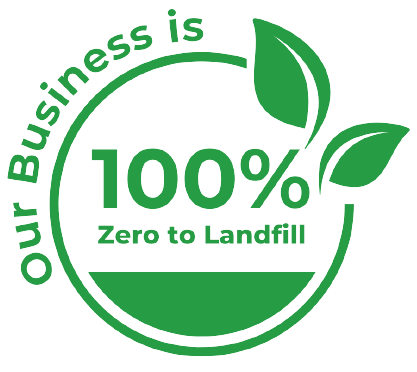Paper Waste
Nationwide Paper Collection and Recycling
What Is Paper Waste?
Almost all businesses produce paper waste. The nature of your business will determine how much paper you use and what your waste output is. Generally office based businesses produce more paper waste than construction or industrial businesses.
Paper and paper products play a role in everyday life, we use so much of it we have a duty of care to produce it in a sustainable way. The good news is paper is very recyclable, unlike other products such as certain plastics and oil which can only be recycled 2 or 3 times, paper can be recycled upto 6 times.
Every tonne of recycled paper saves 17 trees, upto 30,000 litres of water and enough power supply for an average sized house for a year. 70% less energy is used when making new paper from recycled material rather than virgin pulp (trees).
Paper Waste Collection Nationwide
With more and more businesses being aware of the environment and the impact waste has on it, most people now understand the importance of recycling. Not only is it good for the environment, it is also good for business.
With a few exceptions almost all paper can be recycled, some examples are:
- Copy paper (white and coloured)
- Envelopes (minus the plastic windows)
- Newspapers and magazines
- Brochures and catalogues
- Telephone directories
- Junk mail and flyers
- Notebooks
- Booklets and manuals
- Manila folders
- Flyers
Recycling paper is essential for saving the environment. Trees are the lungs of the planet and without them it can not breath.
Paper Waste Bins
Depending on how much paper waste your business produces will dictate what your waste management plan will look like.
For small producers of waste papers we have wheelie bins in 240/360/660/1100 litre wheelie bins.
If your business produces large amounts of paper waste you may want to look at one of our skips.
For the biggest producers of waste paper you may want to consider balers and compactors. They compress the material, taking up less space, leading to less frequent collections, this can be very cost effective for your business.
Call GWR Waste Management where one of our specialist waste teams can help you to identify what solution is best for your business.
What Happens To Paper Waste?
Once your waste paper has been collected, it is taken to a recycling facility where it goes through a variety of steps during the recycling process.
Step 1: Separation - contaminated paper such as greasy, soiled or paper containing harmful chemicals is removed.
Step 2: Sorting - Different types of paper will be processed differently so they need to be sorted separately.
Step 3: Shredding and Pulping - the paper is shredded into small pieces and mixed with large amounts of water and chemicals to break the paper down into paper fibres. The pulp is then screened for the likes of paperclips, tape, staples etc. This pulp is the raw material used to make recycled paper.
Step 4: De-Inking - the pulp is then put into a floatation tank with more chemicals to remove inks and dyes, this purifies the pulp. At this stage the pulp is around 99% water.
Step 5: Drying - The pulp is then passed through huge rollers to squeeze out the excess water. When the water has been removed the pulp goes through heated rollers to form long rolls of paper.
From there the recycled paper rolls are sent to different manufacturers to be made into new paper products.








